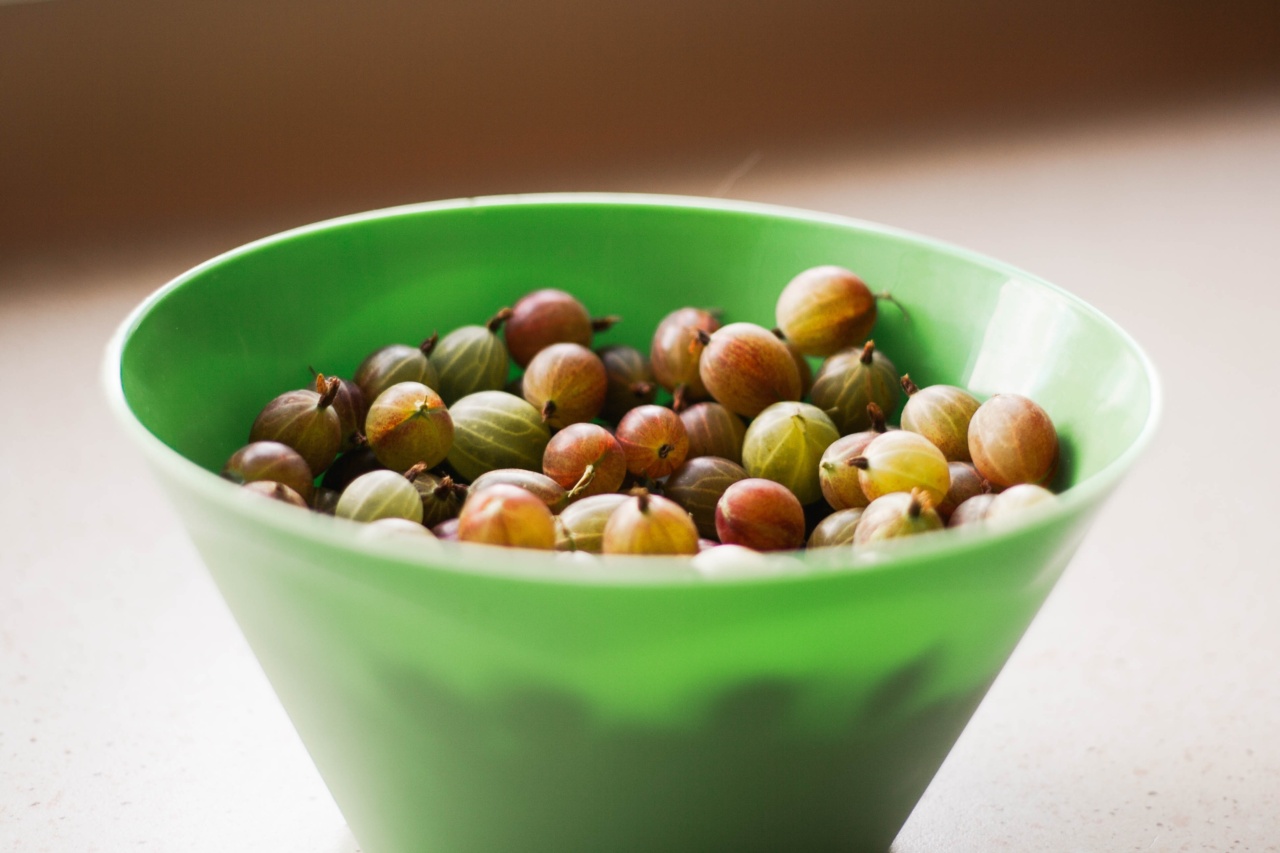Fiber is an essential nutrient that plays a crucial role in maintaining good gut health and overall wellness. It is a type of carbohydrate that the body cannot digest or absorb, passing through the digestive system relatively intact.
Despite being undigested, fiber offers numerous health benefits and is an important part of a balanced diet. In this article, we will explore the importance of fiber for gut health and overall well-being.
The Different Types of Fiber
Fiber can be classified into two main types: soluble and insoluble fiber.
Soluble Fiber
Soluble fiber dissolves in water to form a gel-like substance. This type of fiber is known to help regulate blood sugar levels, lower cholesterol levels, and promote satiety, making it helpful for weight management.
Foods high in soluble fiber include oats, legumes, nuts, and some fruits and vegetables.
Insoluble Fiber
Unlike soluble fiber, insoluble fiber does not dissolve in water. It adds bulk to the diet, facilitating regular bowel movements and preventing constipation.
Insoluble fiber can be found in whole grains, wheat bran, and the skins of fruits and vegetables.
Gut Health Benefits of Fiber
Fiber plays a crucial role in maintaining a healthy gut. Here are some of the key benefits:.
1. Promotes Regular Bowel Movements
Insoluble fiber adds bulk to the stool, making it easier to pass through the digestive system. Including an adequate amount of fiber in your diet can help prevent constipation and promote regular bowel movements.
2. Supports a Healthy Microbiome
The gut microbiome consists of trillions of bacteria that reside in the digestive tract. Eating a diet rich in fiber provides nourishment to these beneficial bacteria, promoting a diverse and healthy microbiome.
A healthy microbiome is associated with improved digestion, immune function, and mental well-being.
3. Reduces the Risk of Digestive Disorders
A high-fiber diet has been linked to a reduced risk of various digestive disorders, including hemorrhoids, diverticular disease, and irritable bowel syndrome (IBS).
By promoting regular bowel movements and supporting gut health, fiber may help prevent these conditions.
4. Helps Manage Weight
Foods high in fiber are generally more filling and can help control appetite. By adding bulk to your meals, fiber makes you feel fuller for longer, reducing the likelihood of overeating.
This can be beneficial for weight management and preventing obesity.
Overall Wellness Benefits of Fiber
In addition to its gut health benefits, fiber also has wide-ranging effects on overall wellness. Let’s explore some of these advantages:.
1. Manages Blood Sugar Levels
Soluble fiber slows down the absorption of glucose, preventing sharp spikes in blood sugar levels. This can be particularly beneficial for individuals with diabetes or those at risk of developing diabetes.
2. Lowers Cholesterol Levels
Certain types of soluble fiber, particularly beta-glucan found in oats and barley, have been shown to lower LDL (“bad”) cholesterol levels.
By reducing cholesterol absorption and promoting its excretion, fiber helps maintain a healthy lipid profile.
3. Supports Heart Health
By lowering cholesterol levels and managing blood sugar levels, fiber contributes to improved heart health. High-fiber diets are associated with a reduced risk of heart disease, heart attacks, and stroke.
4. Aids in Weight Management
Fiber-rich foods are not only more filling but also tend to be lower in calories. Including plenty of fiber in your diet can help you achieve and maintain a healthy weight, reducing the risk of obesity and related conditions.
Tips to Increase Fiber Intake
Now that we understand the importance of fiber for gut health and overall wellness, here are some practical tips to increase your daily fiber intake:.
1. Choose Whole Grains
Opt for whole grain alternatives such as brown rice, whole wheat bread, and whole grain pasta. These options are higher in fiber compared to their refined counterparts.
2. Eat More Fruits and Vegetables
Fruits and vegetables are naturally high in fiber and should form a substantial part of your diet. Incorporate a variety of colorful produce into your meals to ensure a diverse range of nutrients and fiber.
3. Snack on Nuts and Seeds
Nuts and seeds, such as almonds, chia seeds, and flaxseeds, are excellent sources of fiber. They make for a nutritious and fiber-rich snack option.
4. Include Legumes in Your Diet
Legumes, including beans, lentils, and chickpeas, are rich in both soluble and insoluble fiber. These versatile ingredients can be added to soups, stews, salads, and even used as meat substitutes in various dishes.
Conclusion
Fiber is a vital nutrient that benefits both gut health and overall wellness.
By promoting regular bowel movements, supporting a healthy gut microbiome, reducing the risk of digestive disorders, and aiding in weight management, fiber plays a crucial role in maintaining optimal health. Incorporating fiber-rich foods into your diet, such as whole grains, fruits, vegetables, nuts, seeds, and legumes, can help ensure you meet your daily fiber requirements and reap the rewards of a fiber-filled diet.































